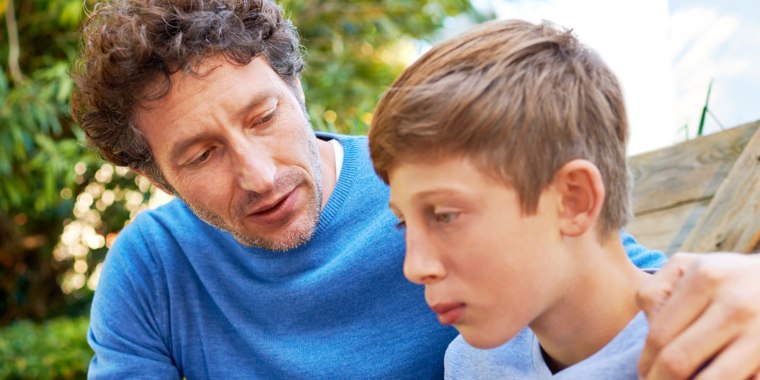Empathy is the ability to identify and respect the feelings of others. When discussing the middle-school years, people often think of mood swings, unpredictable feelings, and selfish tendencies. While many adolescents may seem to be more concerned about their own feelings than anyone else’s, a study published in the journal Developmental Psychology found that young people’s ability to apply empathy to interactions and relationships is developing during the teenage years. Understanding where others are coming from and respecting their perspectives is one of the most essential skills that a person can have. Helping your middle-schooler develop her empathy can contribute to her overall success.
Show your adolescent empathy in action. While you may be doing everything you can to teach her about empathy and how to respect other people’s feelings, this is a time when discussing and practicing the skill regularly becomes very important. Try to talk to your child about your feelings and about times you put empathy into action. For example, you may want to tell her about a time when you consoled a co-worker who had lost a relative or when you cooked a dinner for a sick sibling. This is also when you have to apply empathy to your interactions with your adolescent more than ever, as parents can sometimes forget what it’s like to be that age. Be patient with your child and listen to her concerns, and help her feel more in control of her feelings and her social world. It's through these conversations that your adolescent can begin to understand how you feel and become better able to identify with the emotions and needs of others.
Talk about current events. You can help your middle-schooler understand other perspectives by discussing current social and political issues with her. Watch the evening newscast or look at newspaper articles and start a conversation about the feelings of those involved in these news stories. Movies, television shows, and books you have both read can also help spark these types of discussions. For instance, there have been many stories about teenagers being bullied online. You can use this as a way to talk about the feelings of the victims, the bullies, and those who stood by and did nothing. There are also many stories about children and adolescents caught in political turmoil and conflict, or suffering from poverty and discrimination. Adolescents are developing their idealism and may find themselves inspired to act based on conversations you have about events in the world and the community around them. You can also talk about good things that are happening and people who are making a difference. Look for stories about people volunteering after natural disasters or teachers who are helping their students succeed. This can help your middle-schooler become more involved in contributing to her community.
Parent Toolkit resources were developed by NBC News Learn with the help of subject-matter experts, including Jennifer Miller, Author, Confident Parents, Confident Kids, and Michele Borba, Author and Educational Psychologist.
